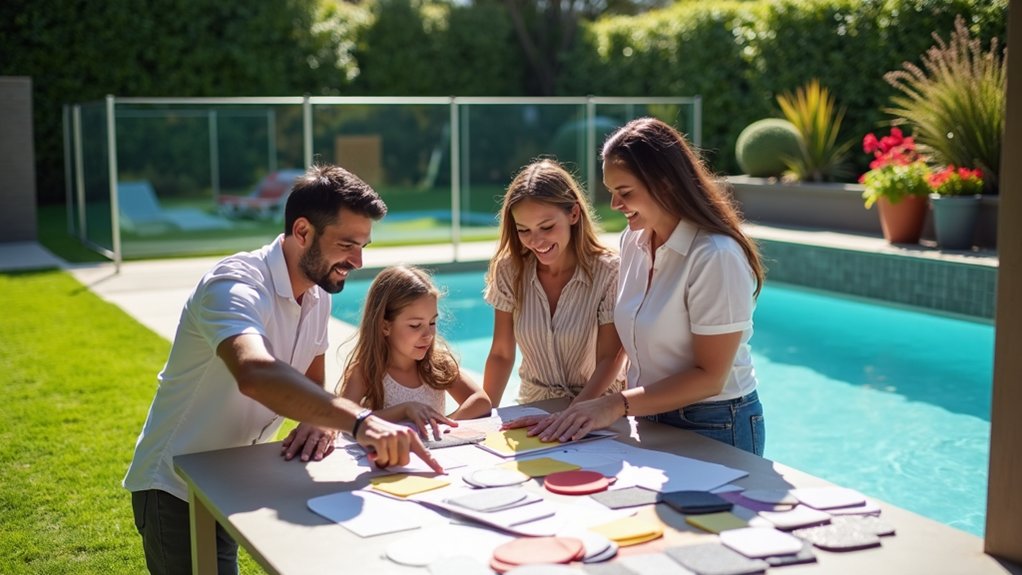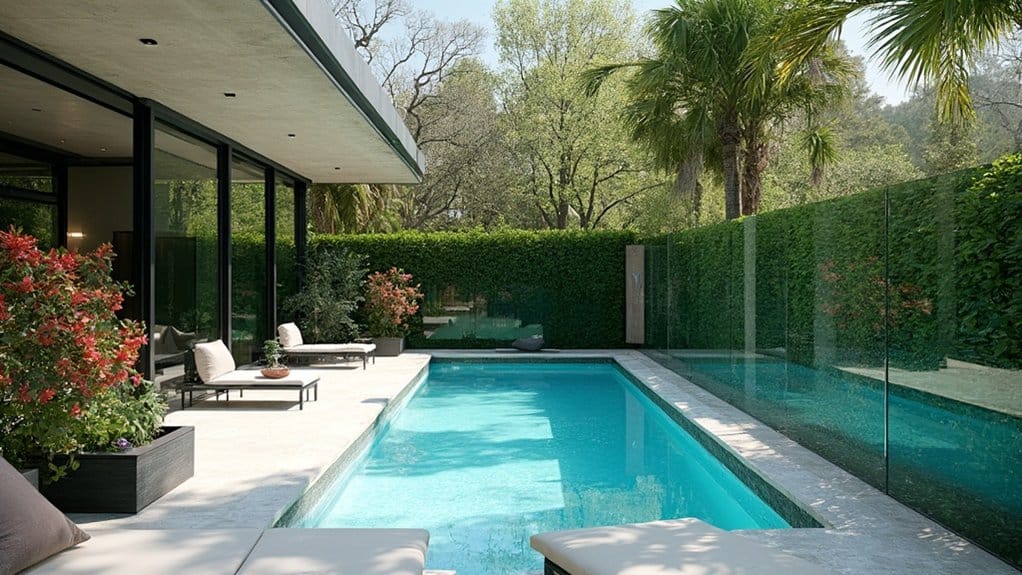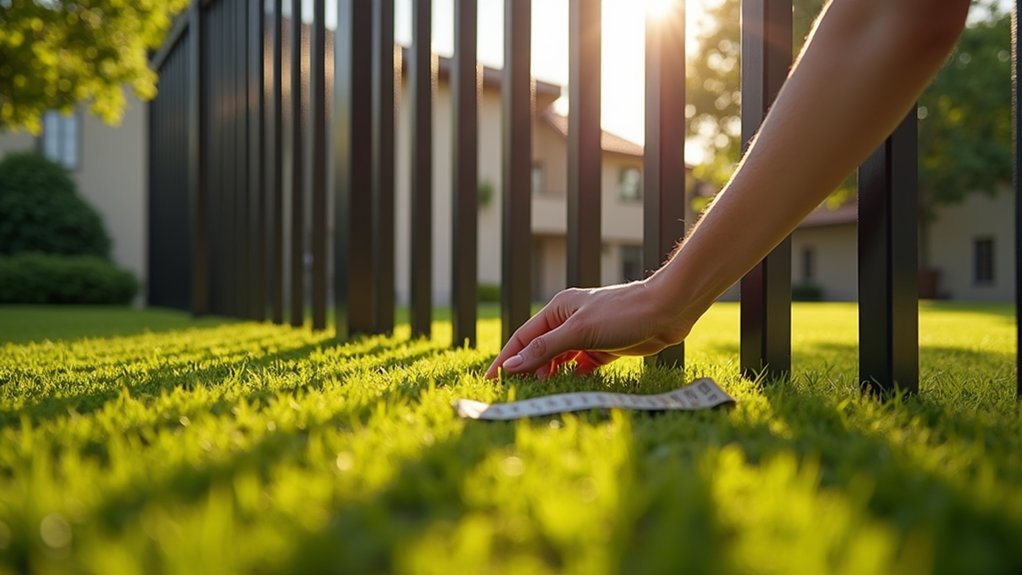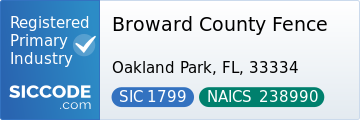To choose the best pool fence for your family, focus on key safety features like height, climbing prevention, and secure gate locks. Consider materials like wrought iron or vinyl for their durability and low maintenance. Decide if you’ll install it yourself or hire a professional, and ensure it complies with local regulations. Regular upkeep will keep your fence looking good and lasting longer. Don’t forget to factor in your budget and design preferences. By weighing these important aspects, you’ll make a smart and safe choice for your pool area.
Key Takeaways
- Assess your family’s safety needs by looking at fence height, features that prevent climbing, and secure gate locks that meet local regulations.
- Choose a durable material like aluminum, vinyl, or glass that matches your style and is easy to maintain.
- Set a budget and look for affordable options, while considering installation and long-term upkeep costs.
- Decide if you want to install it yourself to save money or hire a professional for proper setup and compliance with safety codes.
- Regularly check and maintain your fence to keep it secure, clean, and effective in protecting your pool area.
Understanding Different Types of Pool Fences
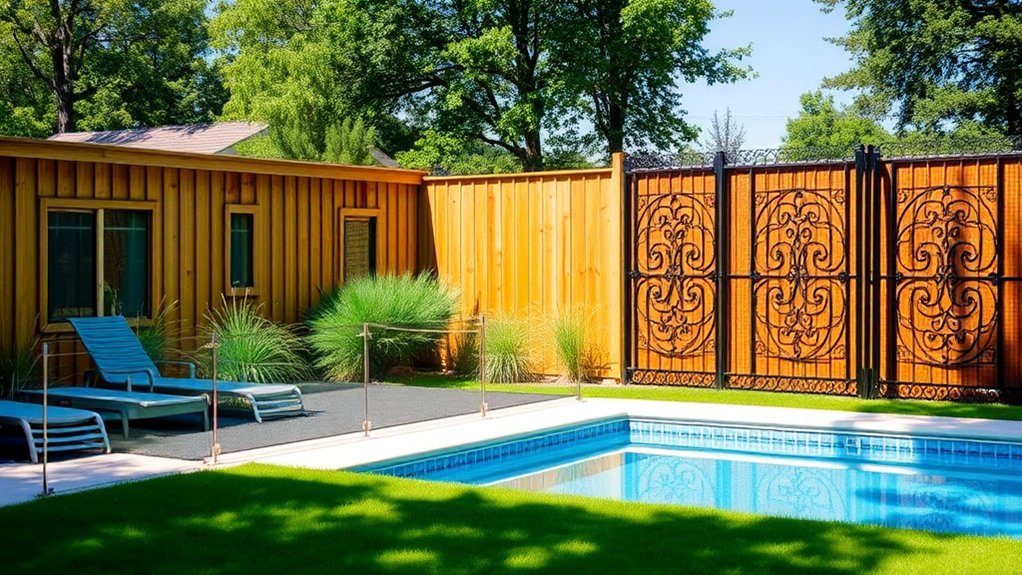
When selecting a pool fence, it’s important to know your options to find the best fit. Consider materials like wrought iron, aluminum, wood, and glass. Wrought iron and aluminum are durable and low-maintenance, while wood gives a classic look but needs regular care. Each material has different styles; for example, vertical bar fencing is secure, whereas picket and panel designs offer customization and privacy. Glass balustrades provide clear views but require frequent cleaning. Additionally, the importance of safety around pools cannot be overstated, as it is essential for protecting children and pets. In Florida, a minimum height requirement for residential pool fences is established to enhance safety. Mesh fencing is great for temporary needs, and chain link is budget-friendly. Choose based on your style and practical needs.
Evaluating Safety Features
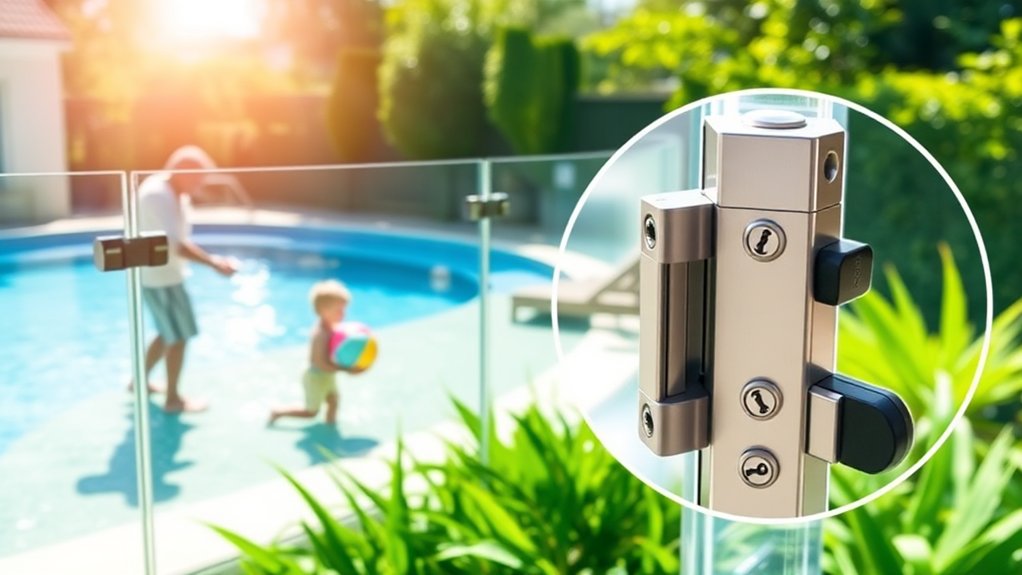
Choosing the right pool fence is crucial for safety. Ensure your fence is at least 4 to 5 feet high and has a design that prevents climbing, with no gaps larger than 4 inches. Use sturdy materials that can withstand water and chemicals, and make sure there are no sharp edges. For gates, look for self-closing and self-latching options with locks that are out of reach for children, ideally placed at least 54 inches high. Regularly check for loose panels or damage, and ensure the fence is securely anchored. Following local safety codes and industry standards will help keep your pool area safe for everyone. Additionally, consider mesh pool fencing as it offers versatility while providing necessary safety features. Installing features like pool alarms can further enhance safety by alerting you to any disturbances in the water.
Installation Considerations
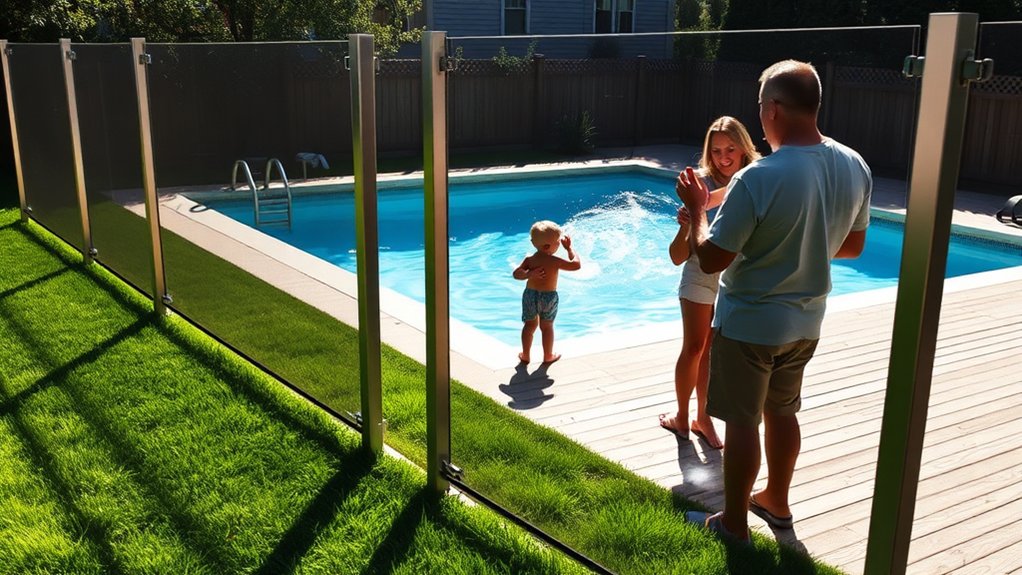
When installing your pool fence, decide between DIY or hiring a professional. Ensure your installation meets local safety codes. Following the right guidelines helps create a safe pool area. For example, if you’re handy, a DIY project can save money, but a pro can ensure everything is done correctly. Planning before installation is crucial to address any potential issues that may arise during the process.
DIY Installation Options
Before starting your DIY pool fence installation, consider a few key factors to ensure a secure barrier.
First, gather essential tools like a drill, measuring tape, and safety gear. Accurately mark your layout to prevent issues like misaligned holes.
Drill carefully and insert sleeves for your posts, making sure they sit flush with the ground. If panels don’t fit standard sizes, make custom cuts.
Lastly, ensure the mesh is tight and the fence is level for optimal safety. Following these steps will help you build a sturdy fence that protects your family effectively. Additionally, make sure to install access control systems for enhanced security and peace of mind.
Local Code Compliance
Understanding local code compliance is crucial for ensuring your pool fence is safe and legal. Here’s what you need to know:
- Fence Height: Your fence should be at least four feet tall; some pools may require a taller fence.
- Gate Mechanisms: Gates must be self-closing and self-latching, with the latch positioned at the top for safety.
- Materials: Use durable, corrosion-resistant materials and ensure there are no openings larger than four inches.
- Anchoring: Your fence must be securely anchored to the ground to prevent tipping.
Maintenance and Upkeep
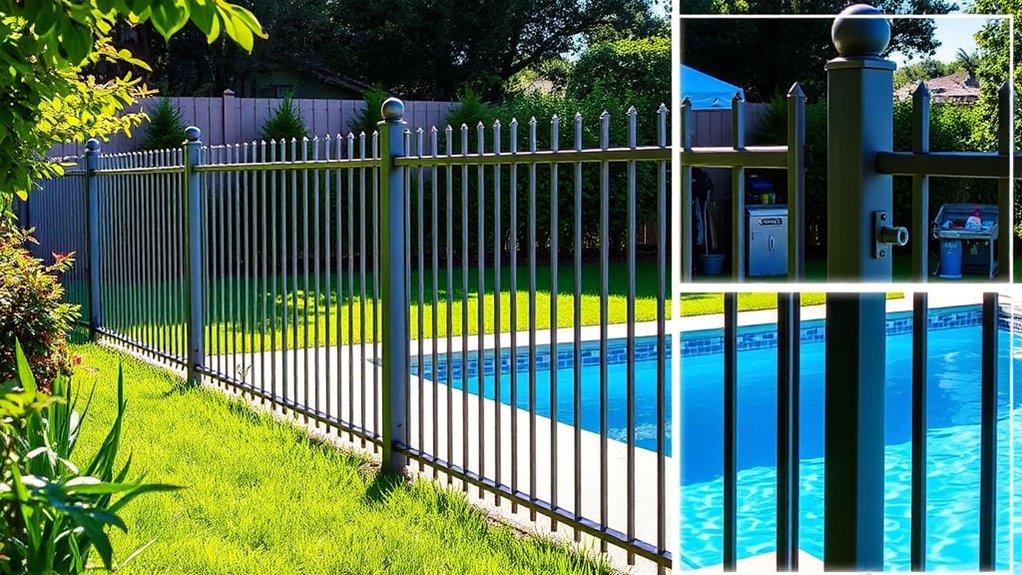
Regular cleaning and maintenance are key to keeping your pool fence in great condition.
Each material needs its own care, so make sure to follow the right steps for your fence type.
For example, vinyl fences may need a simple wash, while wooden ones might require sealing.
Regular Cleaning Requirements
Regularly cleaning your pool fence is crucial for its look and performance.
Here’s a simple cleaning routine you can follow:
- Daily Check: Quickly scan for any debris or stains.
- Weekly Wash: Use a garden hose to remove loose dirt.
- Monthly Scrub: For tougher stains, use a mild detergent and a soft cloth.
- Seasonal Review: Inspect for any wear or damage as seasons change.
Keeping your pool fence clean not only maintains its appearance but also ensures its longevity.
Material-Specific Maintenance Tips
To keep your pool fence in great shape, start with regular cleaning.
For wood fences, stain or seal them often to avoid rot and pests.
Aluminum fences may need occasional repainting to maintain their look, but they resist rust.
PVC fences are low maintenance—just wipe them down now and then.
For glass fences, use specialized cleaners to keep them clear and scratch-free.
Lastly, check mesh fences regularly for any damage.
Following these tips will help ensure your pool fence stays safe and attractive for years.
Cost and Budget Analysis
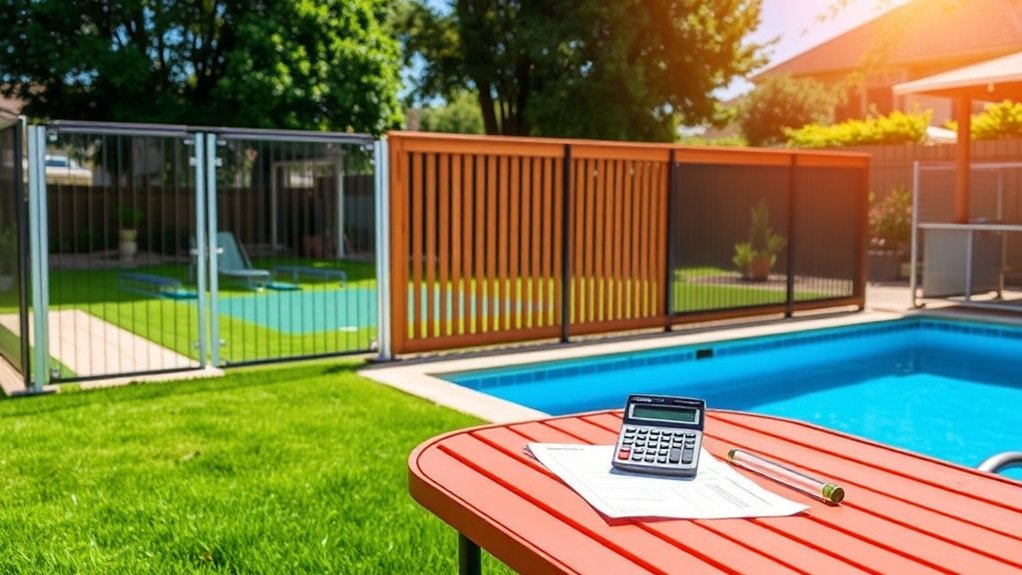
When planning for a pool fence, it’s important to consider the costs involved. Here are some key points to help with your budget:
- Cost Range: Typically, pool fences cost between $10 and $45 per linear foot, which can add up to $2,000 to $13,500 overall.
- Material Options: Choosing budget-friendly materials like mesh or chain link can significantly lower your costs.
- Installation Considerations: While hiring a professional may increase expenses, it ensures that the fence meets safety regulations.
- Future Savings: A pool fence is an investment that can prevent accidents and reduce potential liability costs down the line.
Aesthetic Considerations
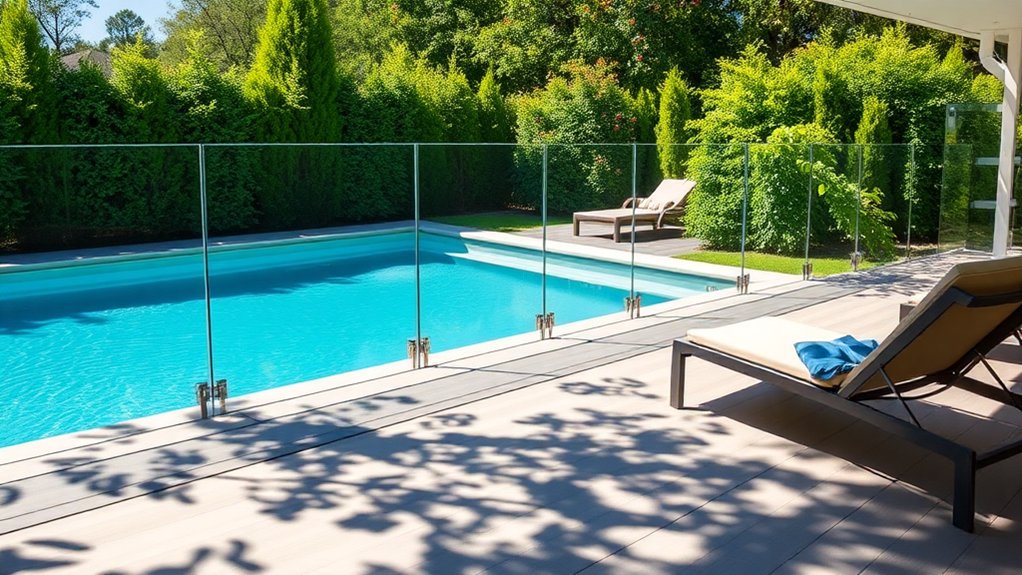
When selecting a pool fence, think about how it matches your home and yard.
You can choose from materials like classic wood or modern aluminum to ensure it fits your outdoor style.
A well-chosen design and finish can boost both the beauty and value of your property.
Landscape Compatibility
To create a visually appealing outdoor space, consider how your pool fence fits with the surrounding landscape.
Here are four straightforward tips:
- Natural Integration: Opt for materials like glass or metal that blend well with your landscape and provide clear views.
- Plant Selection: Use plants that thrive near your fence to enhance its appearance.
- Hardscaping Features: Add pathways or retaining walls to create a cohesive look in your pool area.
- Architectural Alignment: Ensure your fence design matches your home’s style for a unified appearance.
Style and Color Options
Choosing the right style and color for your pool fence can enhance your outdoor space significantly.
Consider materials like aluminum, wood, or wrought iron, each offering a distinct look. Neutral colors such as white, gray, and beige blend well with most landscapes, while darker shades can create bold contrasts with your home.
Remember that muted tones can soften bright outdoor elements. For a cohesive look, match the color of the poles and components.
Explore unique options like Lanai White or Forest Brown for added flair. Ultimately, pick colors that complement your environment and reflect your personal style.
Assessing Your Family’s Needs
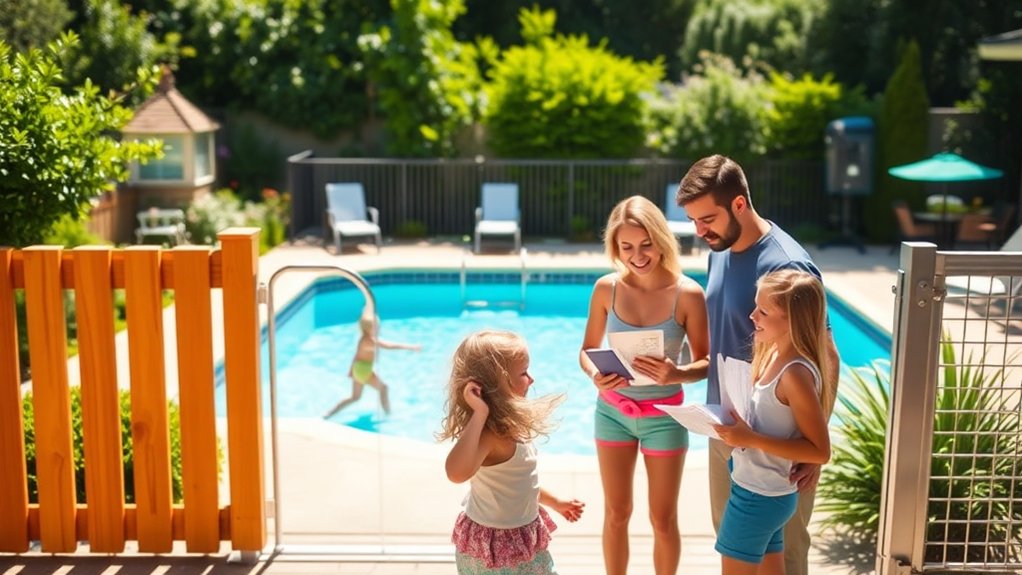
Assessing your family’s pool safety needs is essential. Here are four key factors to consider:
- Age and Mobility: Look at your children’s ages and how mobile they are. This helps determine the right type and height of fencing.
- Number of Kids: If you have multiple children or frequently host friends, you’ll need stronger safety measures.
- Supervision Challenges: Think about any distractions that might make it hard to keep an eye on the pool area.
- Pool Usage: Consider how often your family will use the pool to choose durable fencing materials.
Evaluating these aspects will help ensure your pool area is safe for everyone.
Local Regulations and Compliance
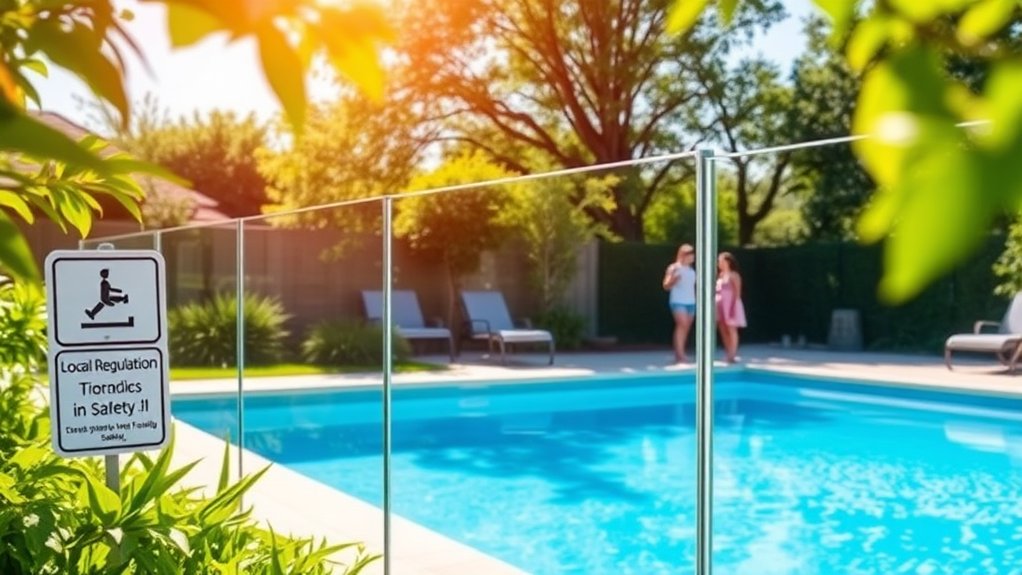
When thinking about installing a pool fence, it’s crucial to understand local regulations to ensure safety and avoid legal issues. Laws can differ by state regarding fence height, style, and materials. Here’s a quick overview:
| Requirement | Details |
|---|---|
| Minimum Height | 4–5 feet |
| Gap Restrictions | 2–4 inches between the fence and ground |
| Gate Requirements | Must be self-closing and self-latching |
| Visibility | Should be clear for emergency access |
| Barrier Separation | Must separate from other yard areas |
Always check with your local building authority for specific regulations in your area. Following these guidelines not only enhances safety but also helps you avoid potential legal issues.
Choosing Between DIY and Professional Installation
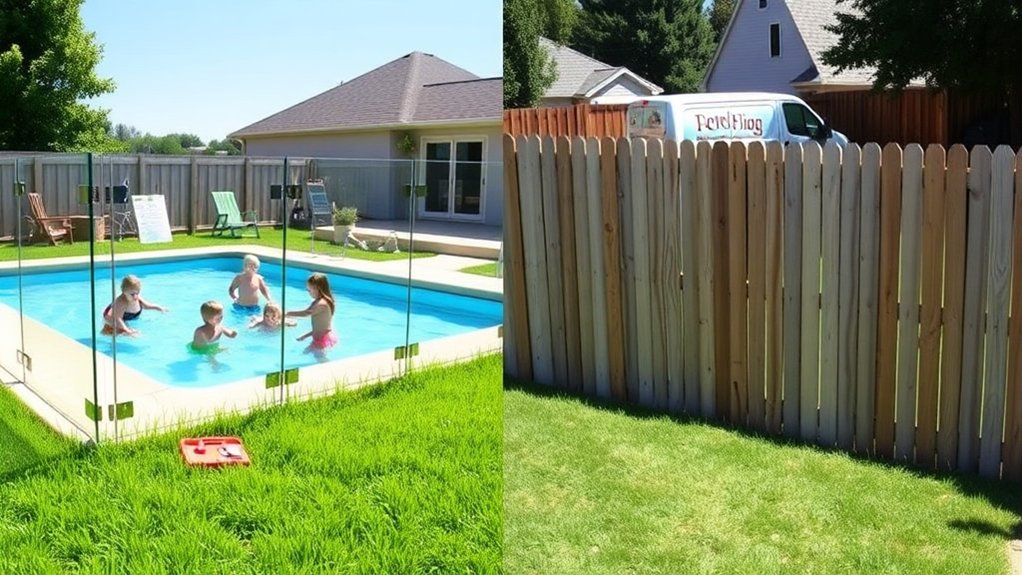
When deciding on pool fence installation, you have two main options: DIY or hire a professional. Each has its benefits and drawbacks, so consider the following:
- Skill Level: Be honest about your DIY experience. Can you handle the installation without issues?
- Budget: Calculate the total cost, including materials and tools for DIY or the price of hiring a pro.
- Time: Think about how much time you can realistically commit to the installation.
- Safety: Ensure you understand local regulations and prioritize safety for your family’s wellbeing.
Your choice should reflect your skills, budget, and safety priorities.
Long-Term Durability and Maintenance Costs
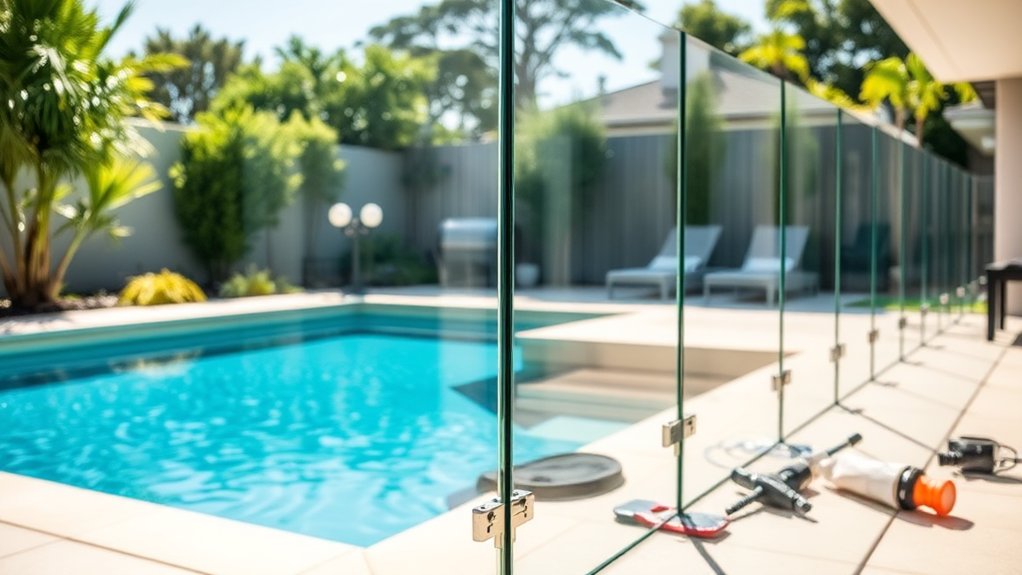
When choosing a pool fence, consider its long-term durability and maintenance costs for a smart investment.
Materials matter: vinyl and aluminum resist weather and rust well, while mesh fences are low-maintenance.
Regular cleaning and inspections can extend your fence’s lifespan and help avoid expensive repairs.
Some parts may need replacement over time, but this usually costs less than a new fence.
Making the Final Decision
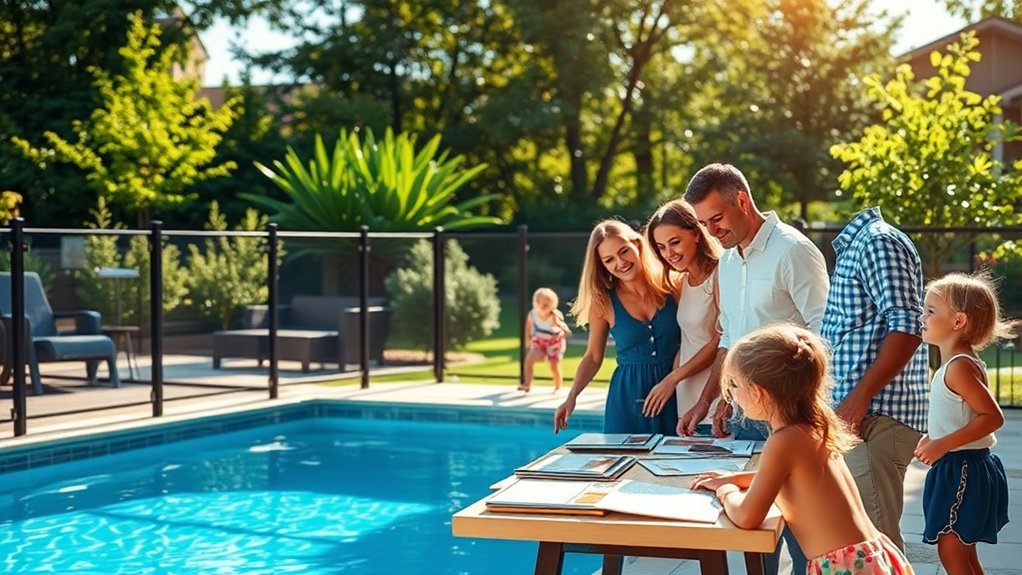
To ensure your pool fence meets your needs, consider these four key factors:
- Material: Decide between options like aluminum, mesh, vinyl, or iron based on their durability and how they look.
- Safety Features: Make sure it has essential features like self-closing gates and lockable latches.
- Local Regulations: Check that it complies with local safety codes regarding height and materials.
- Customization: Choose styles and colors that fit your pool area while still being safe.
Remember, it’s important to balance safety, visibility, and privacy.
Take your time to assess these factors so your pool fence not only protects your family but also enhances your outdoor space.
Frequently Asked Questions
What Are the Best Pool Fence Options for Small Pets?
For small pets, mesh fences made from pet-friendly materials are ideal. Ensure the fence is at least 2 feet tall to prevent jumping. These fences offer good visibility, are durable, and are easy to install, keeping your pets safe around the pool.
How Do Weather Conditions Affect Different Pool Fence Materials?
Worried about your pool fence during a hurricane? It’s important to consider weather resistance. Stainless steel and vinyl are great choices for stormy conditions, while wood, though traditional, can weaken without proper care. Choose wisely to ensure safety and durability.
Can I Install a Pool Fence on Uneven Ground?
Yes, you can install a pool fence on uneven ground. Use stepped or raked methods to ensure stability and compliance with safety regulations. For example, if your yard slopes, a stepped fence follows the terrain, while a raked fence angles down to maintain a consistent height. Both options keep your pool area secure.
What Are the Most Common Mistakes When Installing Pool Fences?
When installing a pool fence, steer clear of common pitfalls such as neglecting safety, selecting low-quality materials, and making installation mistakes. For instance, using flimsy materials can compromise safety, while improper installation can lead to gaps that allow access to the pool. These errors not only endanger your family but can also result in expensive repairs later on.
How Can I Enhance the Visibility of My Pool Fence?
To improve your pool fence’s visibility, opt for glass panels or minimal framing. Use slim profiles and transparent materials to ensure safety while providing clear views of the pool area. These choices not only enhance aesthetics but also maintain an open feel in your outdoor space.
Conclusion
Investing in a pool fence is about ensuring your family’s safety and enjoying peace of mind. While the cost may seem daunting, think of it as a worthwhile investment for your loved ones’ protection. Take the time to evaluate your specific needs and options available. The right fence can enhance your pool experience while keeping everyone secure. Remember, choosing wisely now means creating safe, joyful memories by the pool in the future.

